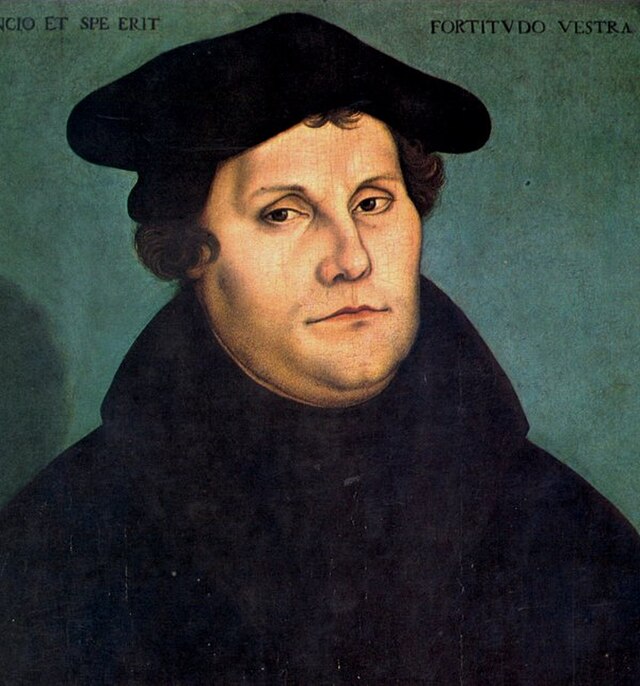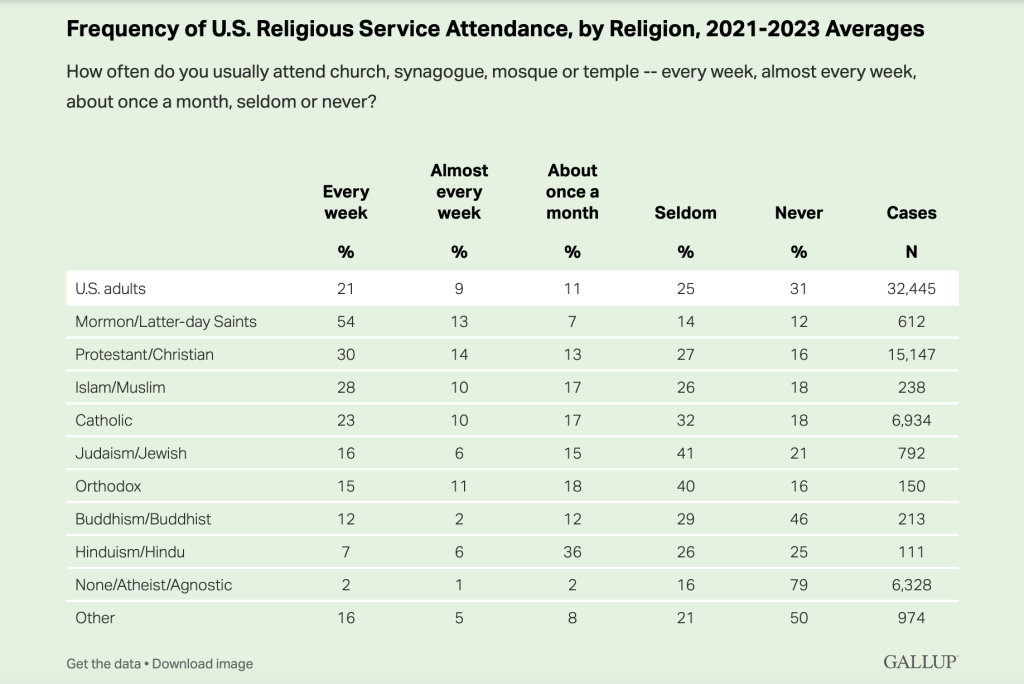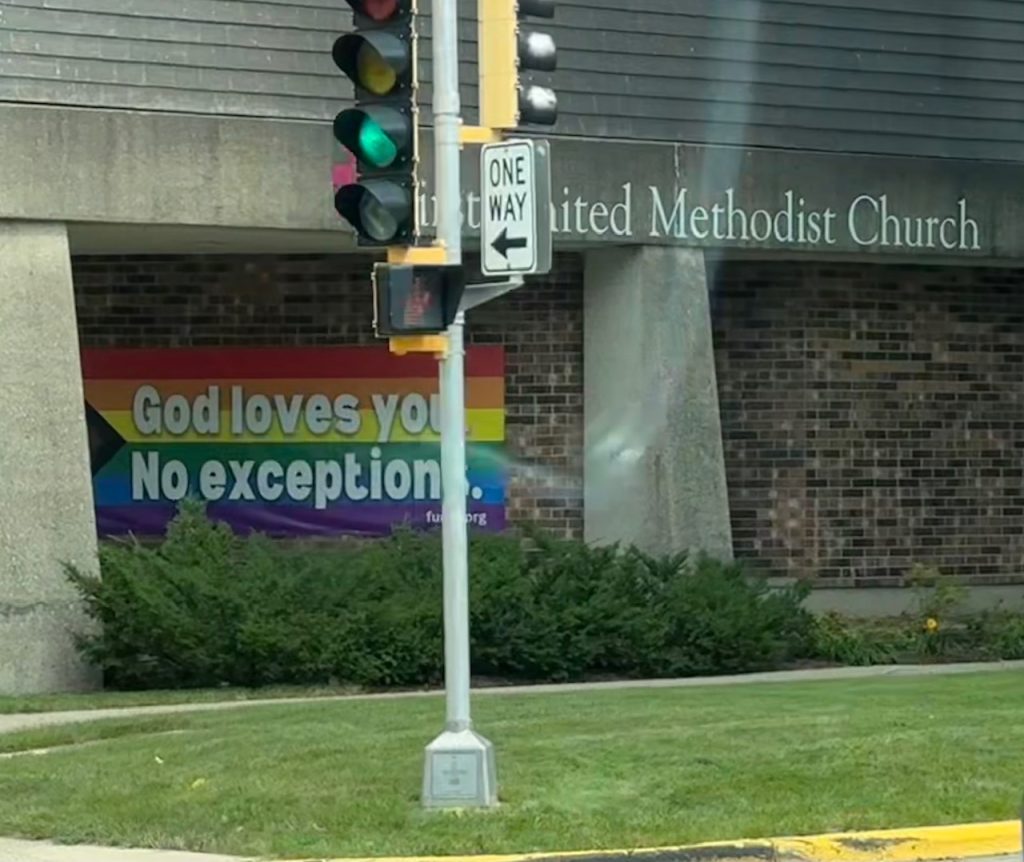
Time was, Americans identified themselves by their Christian denominations. The query "Tell me about yourself" was commonly answered thusly: "I'm a farmer, a Methodist, and a Kansan." The United States was settled, famously, as a Christian nation. "In God We Trust" is printed on our currency. The First Amendment mentions religion first, before speech:
"Congress shall make no law respecting an establishment of religion, or prohibiting the free exercise thereof..."
What the founding fathers might have found confounding, however, is the erosion of American faith. The decline is seen across the board, not only in Christianity. A Gallup poll from March, 2024 found that Mormons are the only group to regularly attend religious services at a rate greater than 50%.

Covid fearmongering and lockdowns didn't help matters, but the decline in church attendance has been a trend that far predates 2020. By 2020, only 47% of Americans claimed to belong to a church, synagogue, or mosque. That figure was 50% in 2018, and 70% in 1999.
As far as pure new membership numbers, the Catholic Church is faring better than Protestant rivals, but that boost is due in large part to illegal immigration.
Like so many modern issues, we can trace the decline of religious influence to the changing demographic of American families. The nuclear family, the foundation of mental health, transfer of knowledge and tradition, has been in a decline roughly mirroring that of the church.
As reported by Business insider, a 2024 Pew Research study laid bare the ugly data:
"The first major death knell came with the 1973 oil crisis and the two-year recession that followed, which signaled the end of the West's postwar prosperity boom. Since then, the nuclear family has crumbled piece by piece. In 1970, more than two-thirds of American adults between 25 and 49 lived with a spouse and at least one kid. By 2021, only 37% of adults fit the bill, Pew Research found."
Some look to church leadership as a reason for religious decline. In a brilliant article in the magazine Plough Quarterly, the Rev. Benjamin Crosby, an Episcopal priest in Canada, examines the problem of decline from the inside. He begins with a high-level overview of the statistics:
"Our denomination is overwhelmingly old and white, and mostly made up of small churches in parts of the country that are not growing; our failures at evangelism and retaining the people born in our church mean that demographers predict that our numbers will hit zero around 2040. Of course, we won’t actually have zero Episcopalians in 2040; I for one expect to still be around, God willing. But over the course of about a century we will go from being a large, socially and politically prominent institution to being statistically insignificant. If current trends continue, our congregations will be few and far between, and the institutions which the church has supported – seminaries, charities, missionary societies, religious orders, and so on – either will cease to exist or will have to reimagine their roles."
Crosby then pulls back the lens even further, looking to the beginnings of the end:
"Theologians argue about whether the last fifteen hundred years of Christian history show churches fatally compromising with emperors and princes, selling their birthright of Jesus’ radical message for the pottage of worldly power, or faithfully (if incompletely) transforming both individuals and societies by the power of the gospel. Books like Jim Davis, Michael Graham, and Ryan P. Burge’s The Great Dechurching (2023) provide careful analysis of the last few decades of church decline with an eye toward equipping pastors to win back those who have fallen away and to building durable Christian communities that can withstand the acids of secular modernity. But whether celebrated, mourned, or neutrally analyzed, the accounts all agree that organized Christianity in the West faces a crisis."
From there, Crosby gives an insider account of the incompetence of church leadership. This damning insight will not surprise anyone who has dealt with a lay council.
"Perhaps one of the most bewildering and frustrating parts of my experience as a young minister in the church in a time of collapse has been watching the broader institutions of the church seem blissfully unconcerned with this crisis, a crisis that I feel so keenly. It feels rather like standing on a lookout post of the Titanic, spotting an iceberg, and urgently signaling the bridge to change course only to be told that the real issue is a mentality that insists on seeing icebergs as threats rather than opportunities. Or even like being on a sinking ship and urging the captain to launch lifeboats, only to be told that the ship simply will not, cannot go under. On the basis of the functioning of the two denominations with which I am affiliated – the Episcopal Church in which I was ordained and the Anglican Church of Canada in which I currently serve – you would not know that both institutions are facing statistical nonexistence in less than twenty years. People may nod solemnly in response to grim reports of decline and express the desire that something be done, but these supposed desires simply are not reflected in the institutional behavior of the church. The most recent General Synod meeting of the Anglican Church of Canada, for example, failed entirely to discuss its (predictably grim) statistical report. In fact, those who seek to begin honest conversations about our crisis are often castigated for a “scarcity mentality” or a lack of trust in God. Honesty about the likely fate of our denomination seems to be seen as a bigger problem than that coming demise itself."
It's not all bad news. Crosby mentions the Rev. Everett Lees, priest-in-charge of one of the fastest growing Episcopal churches in the country. The secret to Lees' success? Aggressive and consistent follow-up with first-time attendees. In other words, it isn't rocket science. To grow, churches have to treat themselves more like businesses, and less like the entitled institutions they once were.
I spoke to a New York Episcopal priest recently about the same issue of church outreach. He wishes to remain anonymous, but he has been an active priest for 45 years since his ordination in 1979.

In a long conversation over cocktails, I asked why the Episcopal church led the charge in embracing the LGBT community. In the United States, the Evangelical Lutheran Church and the Episcopal Church allow the ordination of openly gay, lesbian, bisexual, and/or transgender clergy.
The airy answer I received about the legions who have left the church due to its embrace of LGBT was, "We don't want them anyway. We're better off without them."
Many Catholics consider their church to be corrupt given the lax response to endless sexual abuse scandals. Now, mainline Protestant churches are swimming in LGBT inclusion bordering on false idolatry. Islam is often used as a cudgel on the international political stage, and in the two wars currently being fought in the world, the president of one side of each is Jewish (Ukraine, Israel).
Yes, the nuclear family issues figure into the decline of religious institutions. So too do poor church leadership and the embrace of secular woke ideologies. Competition from addictive technology and professional sports play a part. It feels as though a new Great Awakening is all but impossible. But that's likely how Christians felt just before the past awakenings.
Go forward in faith, set a godly example for others. As Rev. Crosby points out in his Plough article, "Our God is good and he is faithful, even when we are faithless. To paraphrase the old hymn, his grace has brought his church this far and his grace will bring it home."
We have a small farm stand, we have stopped attending a church completely after the ease at which they folded to the government demands during covid. During the past several years we have become a hub of Christians showing up, professing Jesus Christ as Lord while buying eggs. We have no sign or symbol showing our Faith. We get people who we have never seen just blurt out how they have found Jesus Christ and excepted Him as their Lord and Savior. Faith seems to be growing not religion
The true Christian church is not dying and will never die (Gen 17:7). What is dying are the judeo-christian universalist (aka judaized catholicism) denominational religions like Catholic, Protestant, Methodist, Baptist, Charismatic, Mormon, Seventh Day Adventist etc...etc etc
Christianity was replaced with a completely different religion (Judeo-christianity or Judeo-churchianity) starting 150 years ago with the likes of Schofield and other nefarious actors.